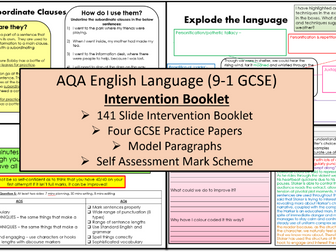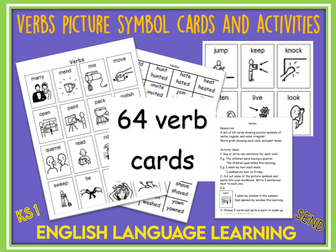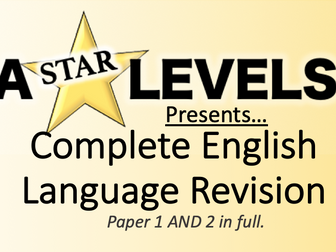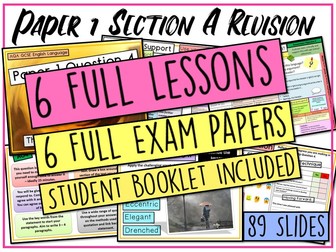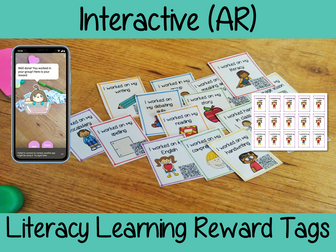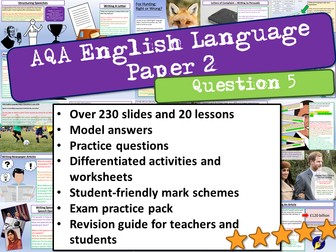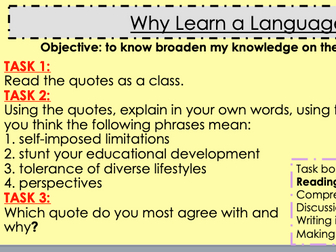
English Language Intervention
This comprehensive PowerPoint, when printed (or emailed) as a booklet, can be used as an English Language intervention and also makes an ideal revision aid. It is modelled on the AQA 9-1 GCSE English Language new specification and includes eight sessions covering both paper one and paper two helping pupils to feel more prepared for their exams.
With over 140 slides, this booklet has a series of easy to follow activities, exam questions and model answers for each of the ten questions of the GCSE. Each session is designed for students to be able to work through independently, or in small groups.
Personally, I have given it as revision to my students, where they work through the booklet in their own time and use what they have learned on the homework tasks - which I then mark and give feedback on and my pupils have enjoyed the challenges and gained confidence in their exam technique. It could be used for isolation and exclusion tasks, extra revision, class work, homework, for intervention groups, or for GCSE re-sit students.
The tasks are aimed at enabling pupils to obtain a grade 5 or above.
Skills from all six AQA Assessment Objectives of the English Language course are included, along with extracts from the mark scheme and starter tasks centered around improving the AO6 and grammar skills of the students.
There are four GCSE practice papers included:
Paper One - Dracula
Paper One - The Red Room
Paper Two - Bank Robberies
Paper Two - Prisons
Please check out my other resources.
Any feedback would be greatly appreciated.
